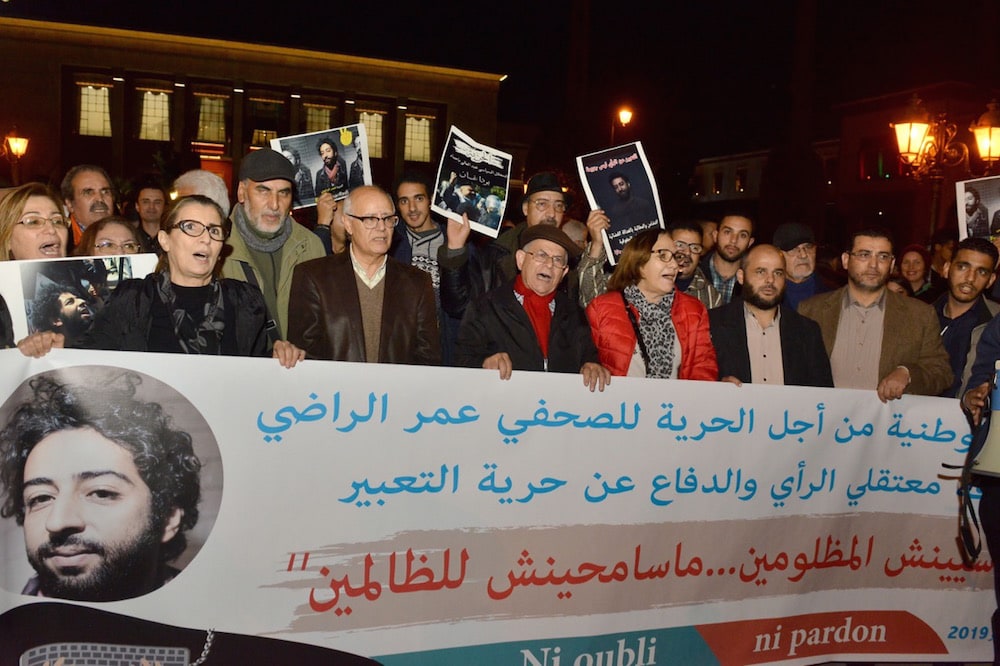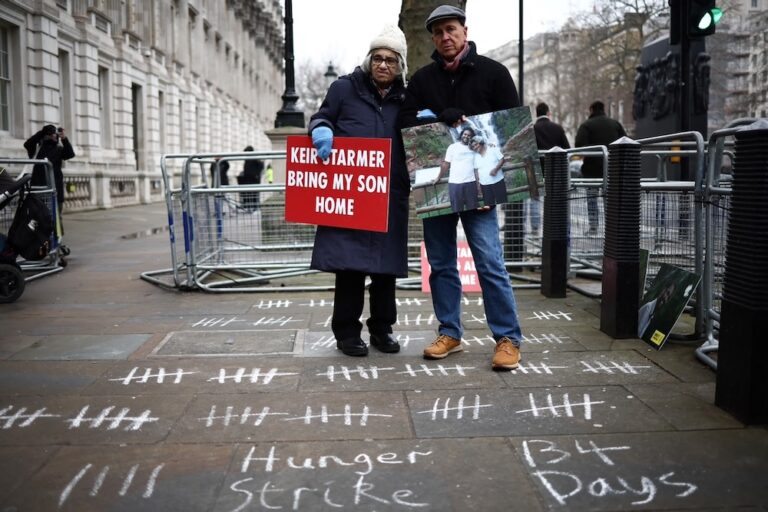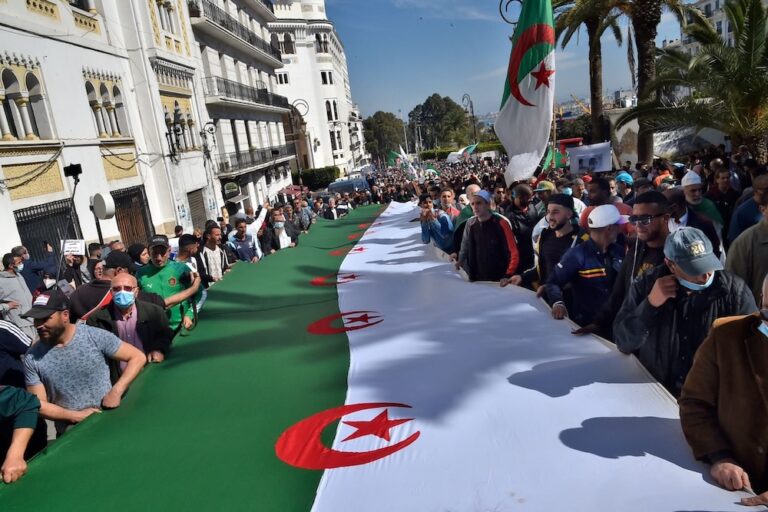The MENA Surveillance Coalition calls for an immediate moratorium on the use, acquisition, sale and transfer of surveillance technology used to target human rights defenders in the region.
This statement was originally published on gc4hr.org on 26 July 2021.
We, the undersigned human rights organizations, call for an immediate halt to the use, sale and transfer of surveillance technology to autocratic oppressive governments across the Middle East and North Africa (MENA). In light of revelations exposing the staggering scale of surveillance targeted at human rights defenders including journalists, bloggers and Internet activists facilitated by Israeli NSO Group’s Pegasus spyware, based in Israel, we urge all states to enforce a moratorium until a clear human rights regulatory framework is established.
Since the 2016 investigation by Citizen Lab identifying one of the early uses of Pegasus by the United Arab Emirates (UAE) to spy on prominent Emirati human rights defender Ahmed Mansoor, now serving 10 years in prison in inhumane conditions, the surveillance industry has only flourished, undeterred. Amnesty International and Forbidden Stories’ breaking investigation, the Pegasus Project, exposed the leaked data of 50,000 phone numbers identified as potential surveillance targets, including four NSO Group government clients from the MENA region – Bahrain, Morocco, Saudi Arabia and the UAE.
Journalists and activists are being targeted
Amongst the Pegasus Project’s shocking revelations, the mass scale surveillance operations by the Moroccan authorities with a target list of 10,000 phone numbers including those of world leaders, activists and journalists, stood out.
The analysis identified at least 35 journalists who were targeted with Pegasus by the Moroccan government, and later prosecuted under questionable circumstances or subjected to state-sanctioned campaigns of intimidation and harassment, including Taoufik Bouachrine and Soulaimane Raissouni, Akhbar El-Youm newspaper editors. Bouachrine was sentenced to 15 years in prison on charges of human trafficking, sexual assault, rape and prostitution. His colleague Raissouni was also arrested on sexual assault charges in May 2020, and was sentenced to five years in prison on July 9, 2021. Both of their prosecutions were marred by violations of due process and fair trial rights.
Moroccan journalist and human rights activist Omar Radi was also sentenced on July 19, 2021 to six years in prison on dubious charges of espionage and rape. In June 2020, Amnesty International revealed that Radi was targeted using NSO spyware just three days after NSO Group released its human rights policy.
Further frightening evidence unearthed by the Pegasus Project shows that friends and family members of the slain and dismembered Saudi journalist, Jamal Khashoggi, were targeted with Pegasus spyware before and after his murder. According to a forensic analysis by Amnesty International’s Security Lab, the iPhone of Khashoggi’s Turkish fiancée, Hatice Cengiz, was targeted and successfully infected four days after Khashoggi’s murder, and multiple times in the subsequent days. Other targets include his son Abdullah Khashoggi, his wife Hanan Elatr, his friend and former director-general of Al Jazeera, Wadah Khanfar, and the British human rights lawyer Rodney Dixon who represented Cengiz in filing legal action against the murder of Khashoggi.
These revelations demonstrate that no one is safe, with even the names of people who have fled the country for their own safety, surfacing in the leak. Paris-based investigative journalist and co-founder of the Moroccan Association of Investigative Journalists Hicham Mansouri, who after years of harassment, violence and imprisonment sought asylum in France, was identified as a surveillance target.
Other notable surveillance targets who appear on the leaked Pegasus list include Alaa Al-Siddiq, an Emirati activist and the executive director of ALQST, who was killed in a traffic accident in June 2021, and ALQST founder and Saudi human rights defender Yahia Assiri. Both Al-Siddiq and Assiri relocated to the UK to flee persecution.
NSO’s justifications are groundless
The scandalous targeting of hundreds of journalists and activists in Saudi Arabia, Qatar, Algeria, Bahrain, UAE, Lebanon, Morocco, Turkey and Egypt – many of whom have long been the subject of surveillance, harassment, arrest, torture and assassination – refute the repeated groundless claims made by the NSO Group that its spyware is exclusively used to deter crime and terrorism. Their proclaimed statements that they are willing to investigate misuse of their technology and take action accordingly appear unfounded against the backdrop of last week’s mammoth exposé.
These dangerous tools should not be readily available in the MENA region
In the absence of any oversight or regulation of the thriving, opaque surveillance tech industry, autocratic governments in the region have found their go-to tools to further repress human rights defenders and journalists, and suppress freedom of expression and the media with full impunity.
In authoritarian contexts where there is no transparency nor oversight over the use of this highly invasive technology, no privacy safeguards, no fair trial and procedural safeguards, and no avenues for victim remediation, the sale and use of surveillance technology leads to serious human rights violations, and must be immediately ceased.
It has been two years since the first call for an immediate moratorium on the sale, transfer and use of surveillance tools by the former United Nations Special Rapporteur on freedom of opinion and expression, David Kaye, following the atrocious murder of Jamal Khashoggi. It is now high time for States to heed the call and immediately enforce the moratorium until there is a global human rights regulatory framework in place.
We, therefore, urgently call on all States to take the following steps:
- Implement an immediate moratorium on the use, acquisition, sale and transfer of surveillance technology. This moratorium should extend until adequate global controls and safeguards against abuse are in place.
- Revoke all export licenses of surveillance technology and business ties to non-democratic states in the MENA region that systematically commit human rights violations.
- Initiate an independent, transparent and impartial investigation into cases of targeted surveillance, particularly in the cases of extraterritorial targeting of journalists, human rights defenders and political asylum seekers, and ensure that victims of unlawful surveillance have access to remedy and reparation.
- Adopt a legal framework that requires transparency about the use and acquisition of the surveillance technologies, and proactively make this information available in public registers, including on products and services purchased as well as business contracts with private surveillance companies, to allow for public scrutiny and accountability.
- Engage in and support international regimes and human rights mechanisms that put controls on the use, development and export of surveillance technologies.
- Initiate a follow-up criminal investigation into the killing of Jamal Khashoggi and the targeted surveillance of his family members and associates; and renew international efforts, through judicial and diplomatic means, to achieve justice and accountability.
- International mechanisms including the UN system and relevant governments must put an end to the targeted surveillance of human rights defenders including journalists, bloggers and Internet activists.
Coalition Members:
- Access Now
- Gulf Centre for Human Rights (GCHR)
- Masaar-Technology and Law Community
- Reporters Without Borders (RSF)
- INSM Network (Iraq)
- SMEX
- Red Line for Gulf
- Jordan Open Source Association (JOSA)
- ARTICLE 19



